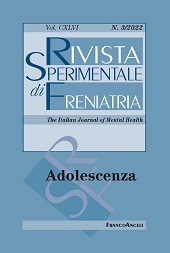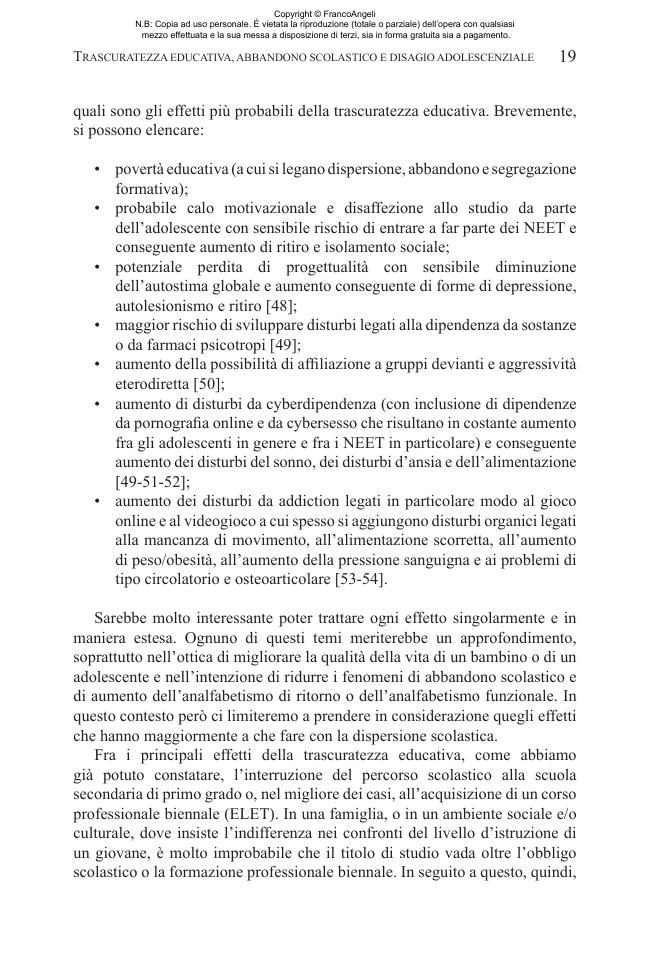Rascuratezza educativa, abbandono scolastico e disagio adolescenziale
P. 9-29
Gli ultimi report sull'istruzione dei giovani italiani, condotte da ISTAT, OCSE-PIAAC, EUROSTAT, MIUR e Save the Children, restituiscono una fotografia preoccupante. Il numero degli abbandoni scolastici, pur in calo, si attesta intorno al 13% (contro una media Europea del 9%). Cresce la percentuale di ELET e dei NEET con l'inevitabile incremento del numero di analfabeti funzionali (che in Italia, in media, tocca punte del 28%). I risultati delle prove INVALSI, poi, hanno messo in evidenza il fenomeno della dispersione implicita, della conseguente perdita di competenze che va ad incrementare gli effetti dello skills mismatch.
Una condizione che necessita di profondi ripensamenti a partire da una delle cause principali: la trascuratezza educativa. Non se ne parla molto e, quando lo si fa, si ha la tendenza a sovrapporla al fenomeno della povertà educativa. In questo lavoro si tenta di definire il fenomeno, di circoscriverlo ma, soprattutto, di ipotizzarne i possibili effetti sulla popolazione adolescenziale. [Testo dell'editore]
The last reports on the educational conditions of Italian youth published by ISTAT, OCSE-PIAAC, EUROSTAT, MIUR and Save the Children, show a dismal situation. The number of dropouts, although decreasing, is 13% (the European average is 9%). The number of Early Leavers from Educational and Training (ELET) and of Not in Education, Employment and Training (NEET) is growing, with the inevitable increase in the percentage of functional illiterates (which in Italy, on average, is up to 28%).
The results of the INVALSI tests have highlighted the phenomenon of implicit dispersion, the consequent loss of competence, which also increases the effects of skills mismatch. A discouraging situation that requires profound rethinking starting from one of the main causes: educational carelessness and neglect. Not much is said about it, and when it is done, there is a tendency to superimpose it on the phenomenon of educational poverty. In this work we try to define the phenomenon, to circumscribeit but, above all, to hypothesize its possible effects on the adolescent population. [Publisher's text]
Is part of
Rivista sperimentale di freniatria : la rivista dei servizi di salute mentale : CXLVI, 3, 2022-
Articles from the same issue (available individually)
-
Information
ISSN: 1972-5582
KEYWORDS
- Trascuratezza educativa; abbandono scolastico; povertà educativa; disagio adolescenziale
- Educational neglect; educational carelessness, educational poverty; adolescent distress



